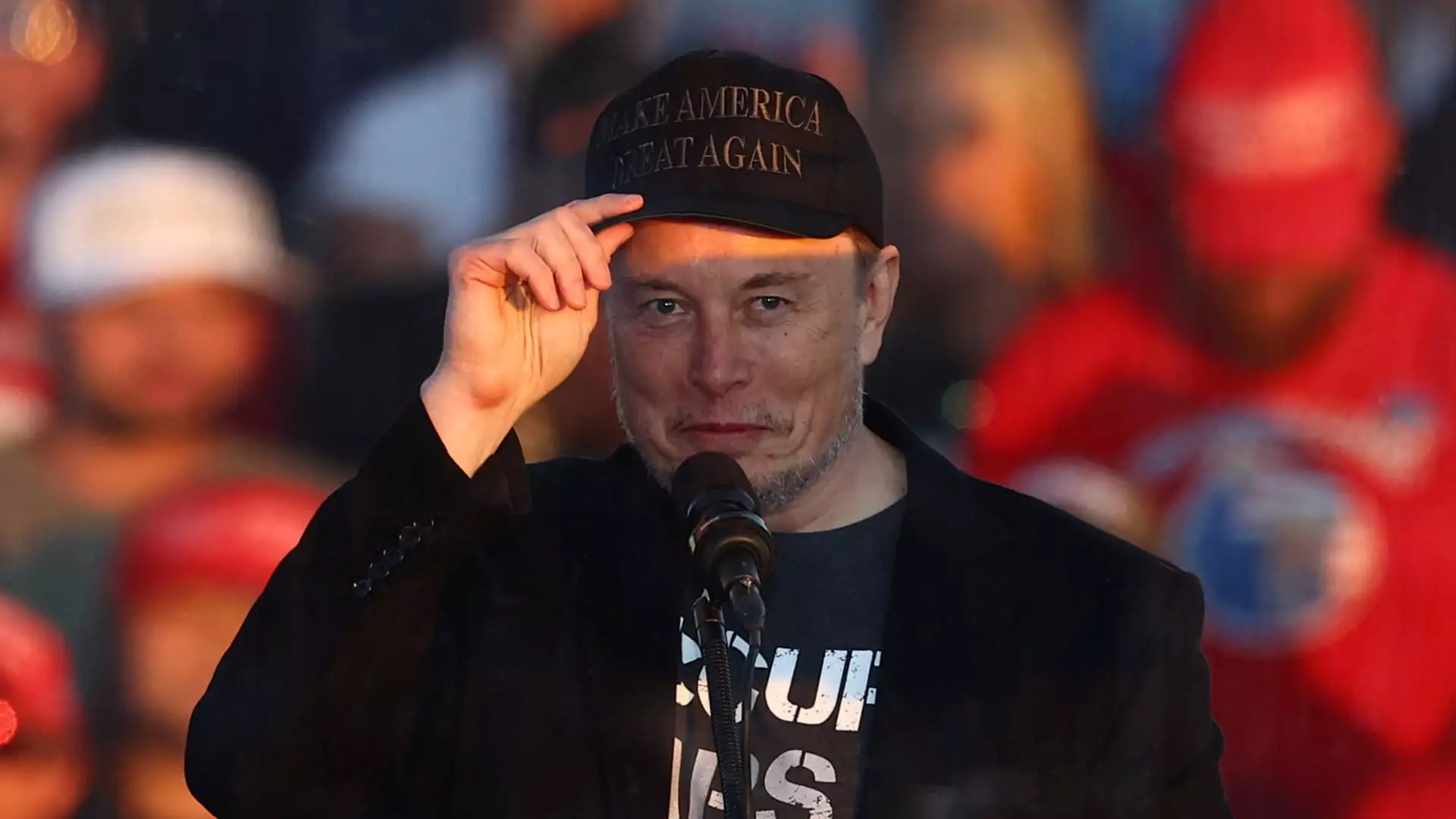Elon Musk, the polarizing CEO of Tesla, has recently found himself at the forefront of a political controversy in Europe, particularly focusing on Germany’s upcoming elections. His outspoken endorsement of the far-right political party, Alternative for Germany (AfD), has caused waves in political discourse, igniting debates about the influence of billionaires on international politics and the troubling associations of far-right movements.
In a bold move on social media platform X, Musk proclaimed, “Only the AfD can save Germany,” while sharing a post from Naomi Seibt, a prominent figure known for promoting far-right ideologies. This public endorsement is not merely a personal opinion; with over 200 million followers on X, Musk’s statements have the potential to significantly impact public perception and political landscapes. The endorsement has drawn widespread criticism from various quarters, including U.S. Senator Chris Murphy, who condemned Musk for supporting what he described as a “neo-Nazi party.” Murphy’s statement highlights a growing concern about the normalization of extremist ideologies and the responsibility of wealthy figures in influencing political environments.
Seibt’s association with the AfD is particularly troubling, as she has a record of promoting white nationalist ideology and downplaying the severity of climate change. By aligning with figures like Seibt, Musk risks associating his brand and public persona with movements that many consider extremist. The AfD’s history and platform contain numerous elements that are deeply rooted in revisionist history, including attempts to rehabilitate the image of Nazism, which has alarmed not only political figures but also the general populace keen on preserving democratic values.
The backlash against Musk’s endorsement has been swift and multifaceted. German Chancellor Olaf Scholz swiftly rebuffed Musk’s assertion, emphasizing that there are numerous other parties capable of leading Germany without resorting to far-right rhetoric. Scholz’s response illustrates the growing divide between mainstream politics and the rising appeal of right-wing populism, as exemplified by the AfD’s recent polling success. Indeed, the AfD is gaining traction in German politics, positioning themselves as a viable alternative in the shadow of a collapsing left-wing coalition and gaining second place in polls ahead of forthcoming elections.
Critics argue that Musk’s endorsement of such an incendiary party raises alarming questions about his influence beyond the business realm. The intersection of his corporate interests with political ideologies reveals a troubling trend wherein influential figures leverage their platforms for political endorsement without considering the profound ramifications such support can have on democratic processes and social cohesion. This is particularly concerning given that Musk’s involvement in the U.S. political landscape has been extensive, proven by his reported $277 million in contributions to support Donald Trump and related Republican causes, a fact that further complicates his recent engagement with European politics.
The implications of this political endorsement also extend into the economic sphere. The AfD has expressed skepticism towards Tesla, criticizing the company’s factory in Brandenburg and claiming that many employees commute from outside the region. This raises essential questions about the economic benefits of foreign investment in local areas, particularly as Tesla continues to face challenges in the European market, such as a significant drop in car sales. The AfD’s focus on traditional automotive industries presents a direct challenge to Musk’s vision of electric vehicles, framing them as part of an ideological crusade rather than an economic opportunity.
Furthermore, the party’s stance against supporting Ukraine and ending sanctions on Russia aligns with Musk’s controversial comments on foreign affairs, raising concerns that Musk is amplifying these nationalist views across borders. This not only jeopardizes the relationship between Germany and its allies but also complicates the narrative surrounding the importance of unity in the face of geopolitical tensions.
Musk’s ventures aren’t limited to Germany; his engagements span across multiple countries, including endorsements of right-wing leaders in Italy and the United Kingdom. His relationships with these populist figures indicate a pattern of synergy between business interests and political ideologies, especially those that align with nationalism and a rejection of mainstream governance.
As the lines between business power and political influence become increasingly blurred, the effects of Musk’s endorsements pose vital questions about accountability and the role of billionaires in shaping democratic frameworks. While Musk may garner attention and support for his views within a certain demographic, the broader implications—particularly when linked to extremist rhetoric—command a measured and critical response from society.
Elon Musk’s recent political endorsements represent much more than personal political leanings; they are a stark reminder of how influential figures can alter political narratives and align with controversial ideologies, thus challenging the principles of democracy and inclusivity. It is incumbent upon societies to scrutinize these influences closely, ensuring that the political climate remains a reflection of diverse voices and not merely the ambitions of a select few.

